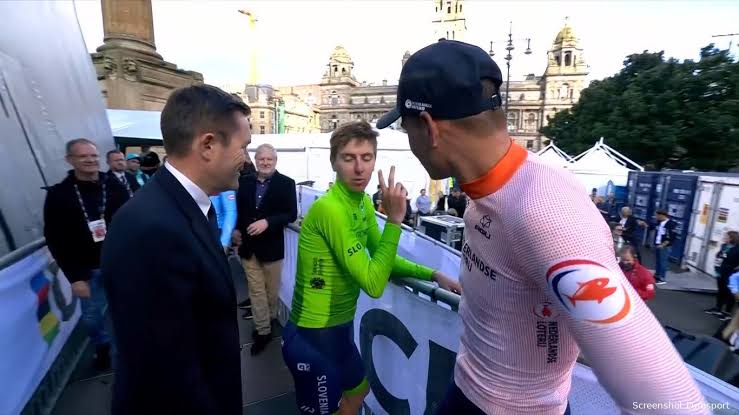In a recent statement, UCI President David Lappartient came to the defense of Dutch cyclist Mathieu van der Poel, dismissing the negative criticisms that have emerged following the cyclist’s controversial moments in major competitions. Lappartient emphasized the importance of Van der Poel as an ambassador for cycling, underscoring his contributions to the sport beyond mere competition.
### Context of the Controversy
Mathieu van der Poel, a prominent figure in professional cycling, has garnered both admiration and scrutiny throughout his career. Recently, he faced backlash after incidents that some perceived as unsportsmanlike. These moments, however, should not overshadow his achievements and the positive impact he has had on the sport, according to Lappartient.
In his statement, the UCI president acknowledged the heightened emotions that often accompany high-stakes competitions. He pointed out that athletes are under immense pressure, and reactions can sometimes be misinterpreted. “Mathieu is human, and like all athletes, he experiences moments of frustration,” Lappartient said. “What we need to focus on is his passion for cycling and the way he inspires fans around the world.”
### The Role of Athletes as Ambassadors
Lappartient’s defense of Van der Poel is rooted in the broader role of professional athletes as ambassadors for their sport. He noted that Van der Poel has consistently demonstrated sportsmanship and dedication, both on and off the bike. “He engages with fans, promotes cycling, and brings a unique energy to every race he participates in,” Lappartient stated.
Van der Poel’s charisma has undoubtedly played a significant role in popularizing cycling, particularly among younger audiences. His achievements, including victories in prestigious races, have made him a household name, not just in the Netherlands, but globally. Lappartient believes that it is essential to highlight these positives, especially in a sport that strives for growth and inclusivity.
### The Impact of Criticism
Criticism can have a profound impact on athletes, often affecting their mental health and performance. Lappartient expressed concern that negative media coverage might overshadow the positive aspects of an athlete’s career. “While we must hold athletes accountable, it is equally important to recognize their efforts and the context of their actions,” he remarked.
He urged fans and critics alike to foster a more supportive environment, one that encourages athletes to express their true selves without fear of backlash. “We should aim for a culture that supports dialogue and understanding rather than one that seeks to condemn athletes for their mistakes,” he added.
### A Call for Unity in Cycling
In light of the ongoing challenges within the cycling community, Lappartient called for unity among athletes, fans, and governing bodies. He believes that constructive discussions around athlete behavior can lead to positive changes in the sport. “Let’s focus on building a community that promotes growth, understanding, and respect,” he said.
Furthermore, Lappartient highlighted the importance of mental health resources for athletes. Recognizing the pressures they face, he emphasized that organizations must prioritize the well-being of competitors. “It’s crucial for us to ensure that athletes have access to support systems that can help them navigate the challenges of professional sports,” he noted.
### Looking Ahead
As cycling continues to evolve, Lappartient envisions a future where athletes like Van der Poel can thrive without the weight of undue criticism. He believes that by focusing on their accomplishments and positive contributions, the sport can attract new fans and foster a healthier competitive environment.
The UCI president concluded his remarks by reiterating his support for Van der Poel. “Mathieu represents the spirit of cycling. He is a fierce competitor, a passionate athlete, and above all, a role model for many. Let’s celebrate his contributions rather than dwell on transient moments of controversy.”
In the coming months, as the cycling season progresses, the focus will hopefully shift from criticism to celebration, allowing athletes like Van der Poel to shine in their roles as champions of the sport. As Lappartient highlighted, the future of cycling depends on the collective effort of everyone involved in the sport, from competitors to fans. Together, they can foster a culture of respect and admiration, ensuring that cycling remains a vibrant and engaging sport for generations to come.

